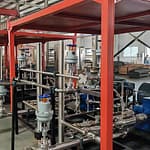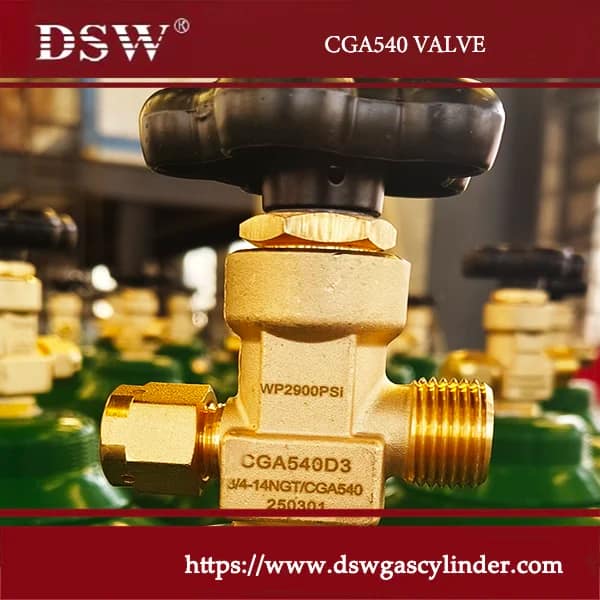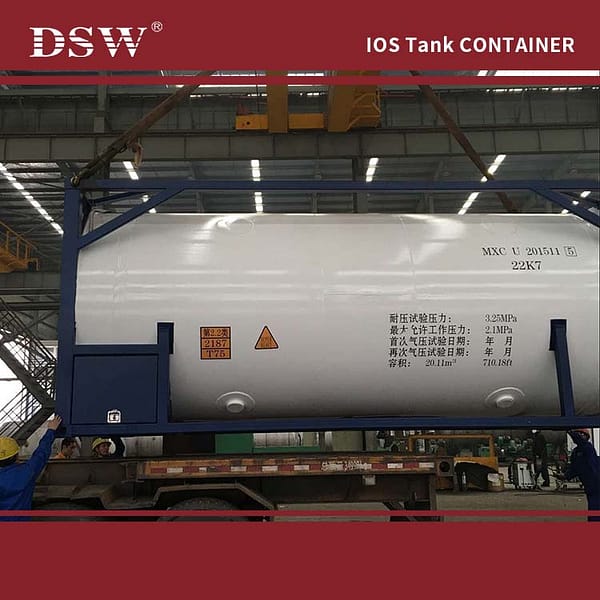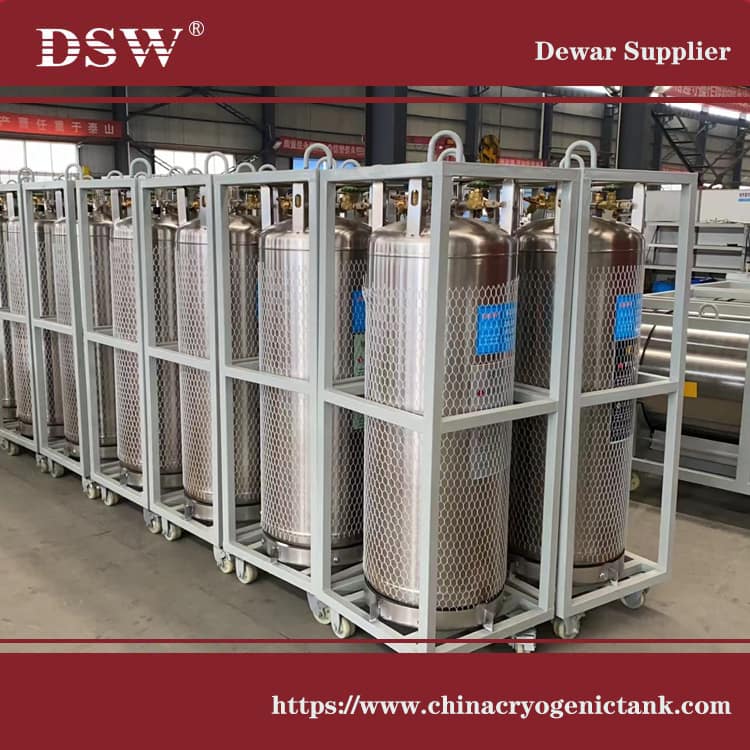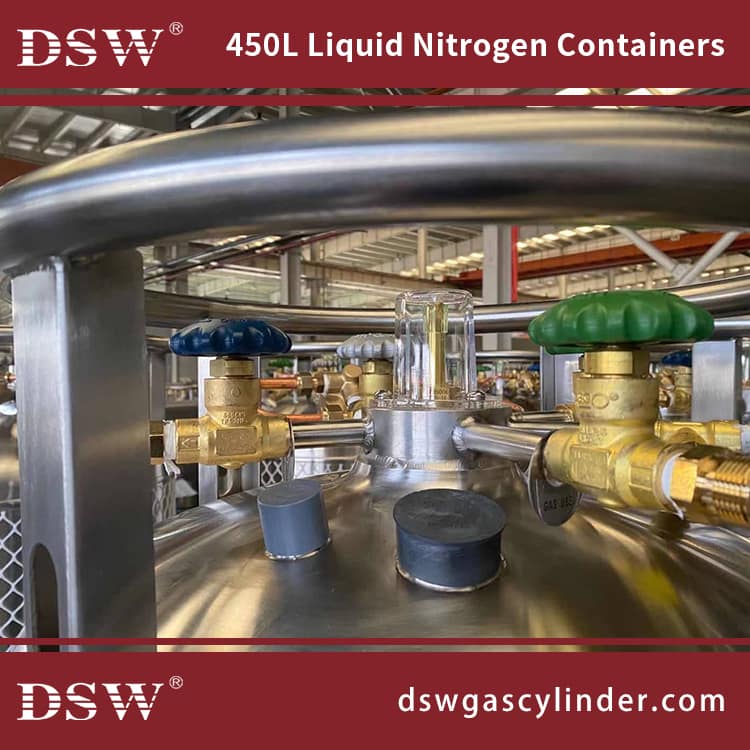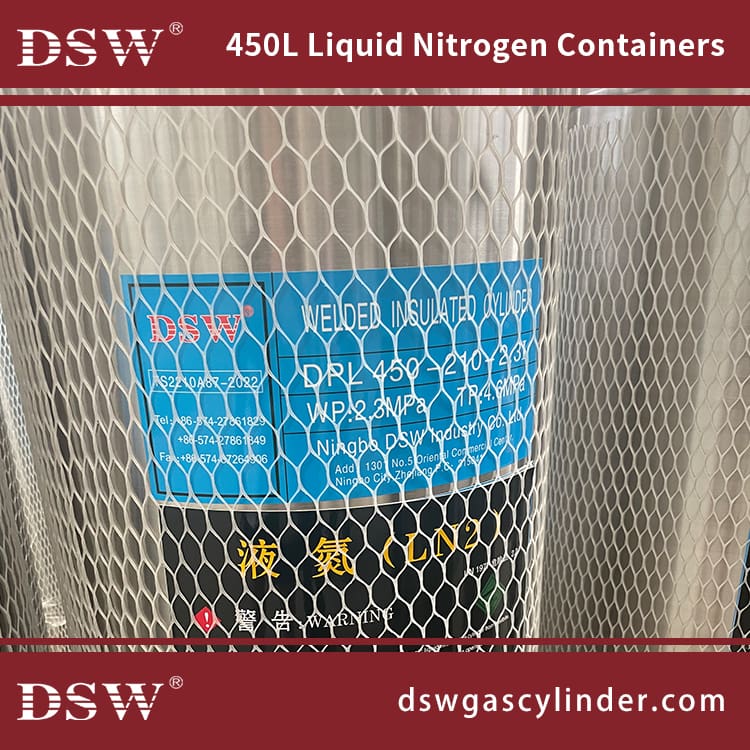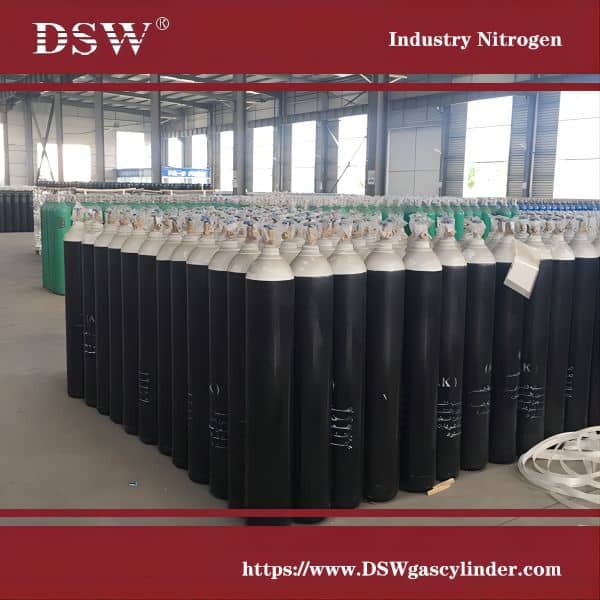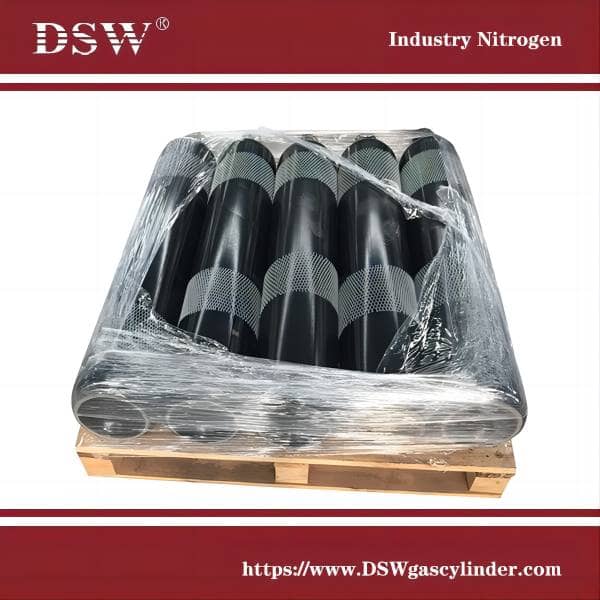Liquid Nitrogen Dewars – cryo dewars supplier
Standard liquid nitrogen dewars come in sizes from an ultra-compact 6L cryogenic dewar to a sizeable horizontal tank that holds 425 litres.
Established in 1998, DSW Industry has high-quality specialized liquid nitrogen dewars and liquid nitrogen tanks available in various sizes.
DSW designs and engineers the perfect accessories for efficient cryogenic liquid nitrogen storage and transfer.
We provide easy, time-saving, and money-saving one-stop solutions to transport and store liquefied nitrogen in customer service.
Cryogenic Dewars for Liquid Nitrogen, Argon, and Oxygen
Dewar Flasks liquid nitrogen
Open-mouth dewar flasks sized with 4″ to 96″ diameters and depths of 20′.
These portable dewars are great for transporting and storing liquid nitrogen (LN2) and oxygen or argon at low pressure.
Their variety of options makes this versatile container suitable for lab, industrial, or technical uses.
horizontal liquid nitrogen dewars
DSW Series Horizontal Cryogenic Storage Vessels
Horizontal liquid nitrogen dewars for low-pressure transport and storage of liquid nitrogen, oxygen, and argon.
Easy to move and conveniently accessible, they are ideal for interaction with LN2 liquefiers.
Liquid nitrogen dewar storage
Liquid nitrogen dewar storage refers to the practice of storing and preserving liquid nitrogen in specialized containers called dewars.
Dewars are designed to maintain liquid nitrogen’s extremely low temperatures, typically around -196 degrees Celsius (-321 degrees Fahrenheit).
Liquid nitrogen dewar storage is commonly utilized in various scientific, medical, and industrial applications. It allows for the safe and convenient storage of liquid nitrogen, which is used for a range of purposes, including cryogenic freezing,
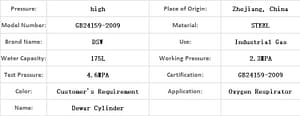
Design and Features:
Vacuum Flask Structure: Liquid Dewars have a double-walled vacuum flask design to minimize heat transfer and maintain low temperatures.
The inner vessel, where the cryogenic liquid is stored, is made of a material with high thermal conductivity, such as stainless steel or aluminium, to maintain low temperatures.
The outer vessel acts as an insulating layer, usually steel, to minimize heat transfer from the environment.
Super Insulation: High-strength aluminium shells with super insulation provide advanced thermal protection.
Neck Tube: The neck tube connects the inner and outer containers, ensuring durability and minimizing nitrogen loss.
High Efficiency: Cryogenic dewars provide high-performance solutions for safely and securely storing large or small amounts of liquid nitrogen or other liquid gases.
Strength Design: Constructed with high-density materials for strength, these liquid dewars can even withstand chemicals or corrosive liquids without issue;
Easy Operation: Wide-mouthed openings allow easy transference or pouring without spillage of samples from storage.
Dewar Tank Sizes
| Model | DSW450-175-1.37 | DSW450-175-2.3 | DSW450-195-1.37 | DSW450-195-2.3 | DSW450-210-1.37 | DSW450-210-2.3 | DSW450-210-3.0 | |
| Nominal volume(L) | 175 | 175 | 195 | 195 | 210 | 210 | 210 | |
| Effective capacity(L) | 160 | 160 | 177 | 177 | 191 | 191 | 191 | |
| Dimension(diameter*height) | Φ510*1557 | Φ510*1557 | Φ510*1673 | Φ510*1673 | Φ510*1767 | Φ510*1673 | Φ510*1673 | |
| Working pressure (Mpa) | 1.37 | 2.3 | 1.37 | 2.3 | 1.37 | 2.3 | 3 | |
| Safety valve open pressure(Mpa) | 1.59 | 2.41 | 1.59 | 2.41 | 1.59 | 2.41 | 3.45 | |
| Bursting disk open pressure(Mpa) | 2.41 | 3.6 | 2.41 | 3.6 | 2.41 | 3.6 | 5.17 | |
| Evaporation rate(Lin)(%/d) | <2.1 | <2.1 | <2.0 | <2.0 | <2.0 | <2.0 | <2.0 | |
| Empty weight(kg) | ≈130 | ≈142 | ≈133 | ≈152 | ≈131 | ≈165 | ≈165 | |
| LO2 | ≈182 | ≈182 | ≈202 | ≈202 | ≈218 | ≈218 | ≈218 | |
| LN2 | ≈129 | ≈129 | ≈142 | ≈142 | ≈154 | ≈154 | ≈154 | |
| Max filling weight | LAr | ≈224 | ≈224 | ≈248 | ≈248 | ≈268 | ≈268 | ≈268 |
| LNG | ≈68 | ≈68 | ≈75 | ≈75 | ≈75 | ≈75 | ≈75 | |
| (kg) | LCO2 | — | ≈188 | — | ≈209 | — | ≈225 | ≈225 |
| Level gauge | Floating level | Floating level | Floating level | Floating level | Floating level | Floating level | Floating level | |
| Surface treatment | Polish | Polish | Polish | Polish | Polish | Polish | Polish | |
| Base type | Rubber base | Rubber base | Rubber base | Rubber base | Rubber base | Rubber base | Rubber base | |

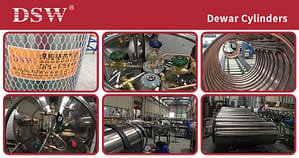
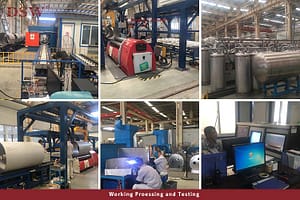
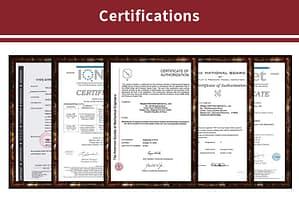
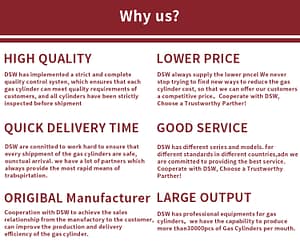
Inspection guarantee of cryogenic Dewars:
According to technological requirements, the relevant welding seams must be tested with 100% RT nondestructive and penetrant tests (PT).
High-purity nitrogen (up to 99.999%) will be used for strength testing.
Finally, Helium mass spectrometers will use advanced leak detectors with precision of up to 2×10-9Pa.L/s.
dewar flask liquid nitrogen for All Applications
Limitations have yet to be set regarding cryogenic applications, yet our equipment and talent have already found applications such as:
Industrial:
Liquid dewars are used to store cryogenic fuels, such as liquefied natural gas (LNG), in energy and power generation applications.
They help maintain the fuel in its liquefied state, enabling efficient transportation and storage until it is needed for power generation.
Cryo dewars are crucial in quick-freezing food products, pharmaceuticals, and biological samples in industrial freezing processes.
The dewars actively maintain low temperatures, ensuring the preservation of the frozen materials’ quality, freshness, and integrity.
Laboratory
Cryo containers are vital in research laboratories, especially in physics, chemistry, and biology. They store and handle cryogenic liquids necessary for conducting experiments, preserving samples, and cooling sensitive equipment.
Medical & Pharmaceutical
The chemical and pharmaceutical industries actively utilize flask dewars for storing and transporting cryogenic chemicals and substances. These dewars play a crucial role in actively maintaining the stability and effectiveness of these materials, which often necessitate extremely low temperatures.
Homecare
Biotechnology
Semiconductor
Superconductivity

